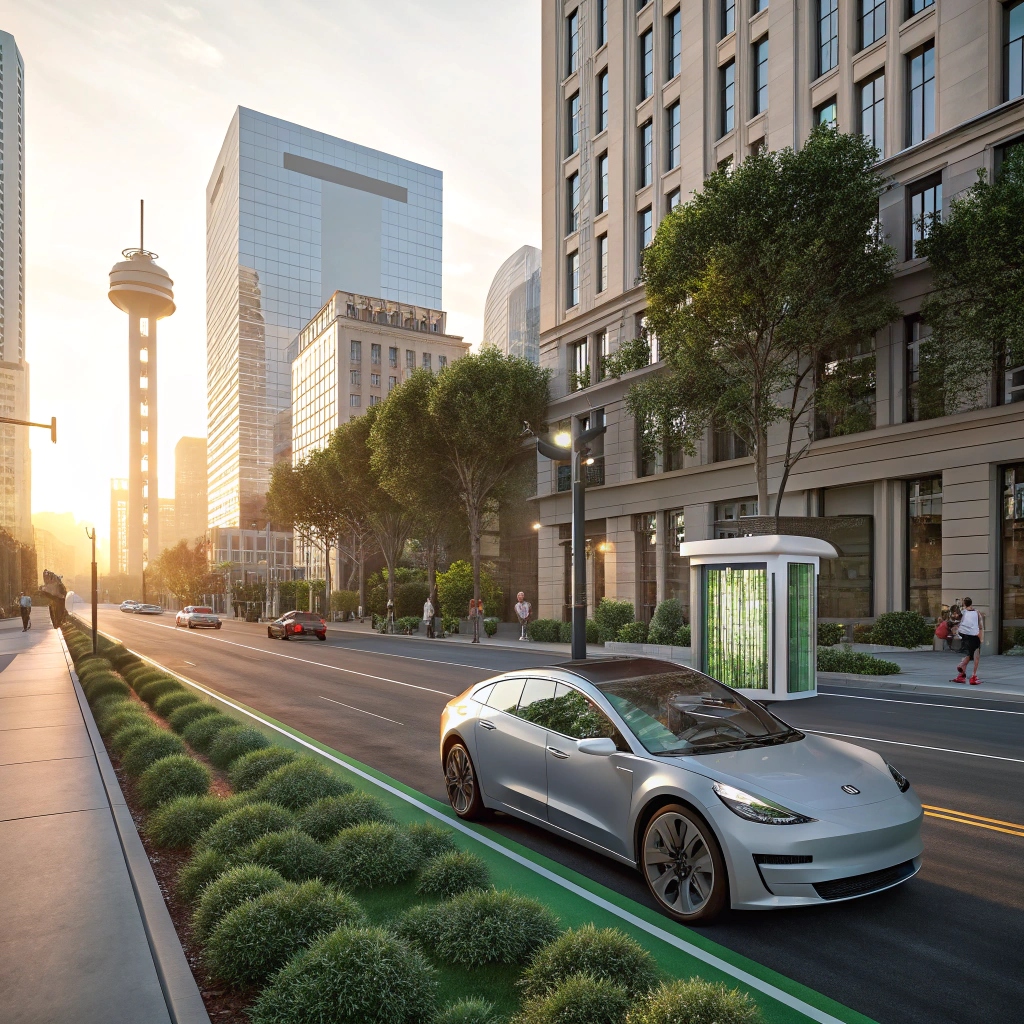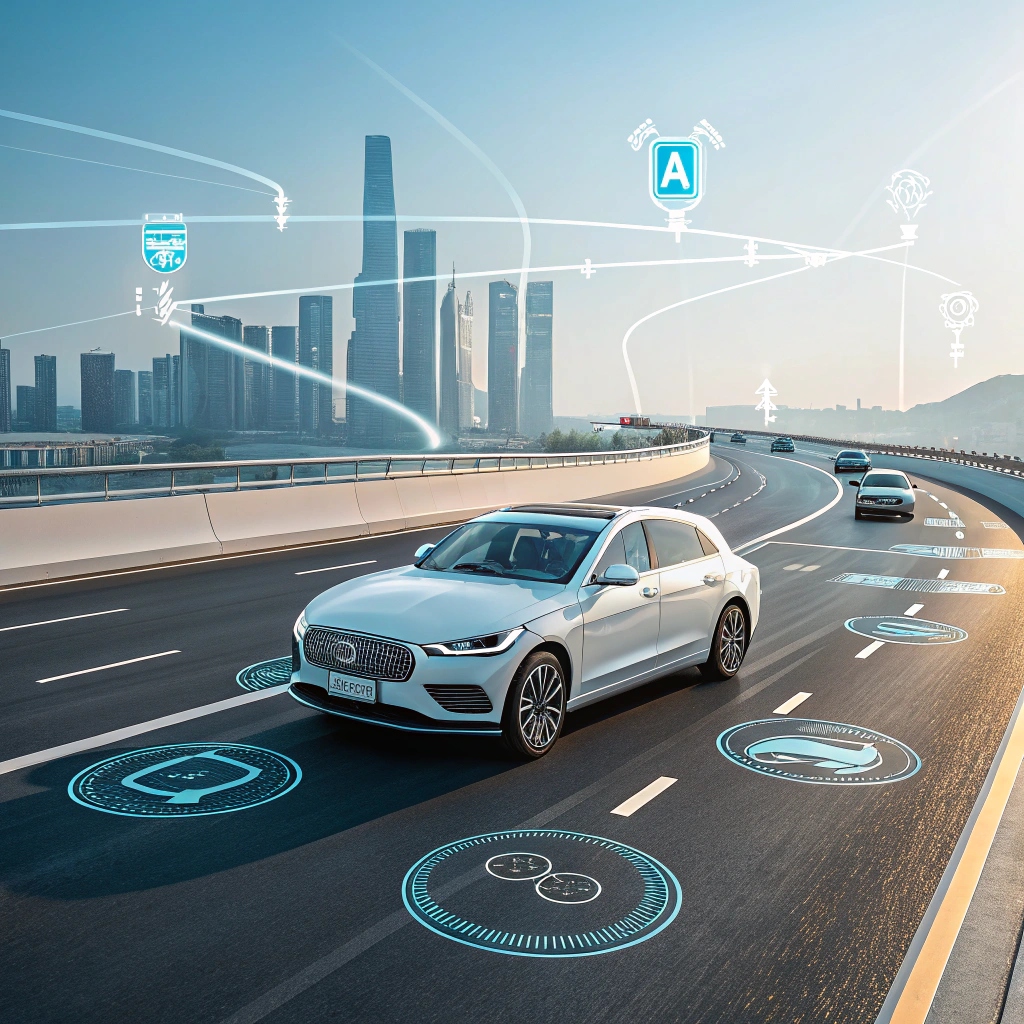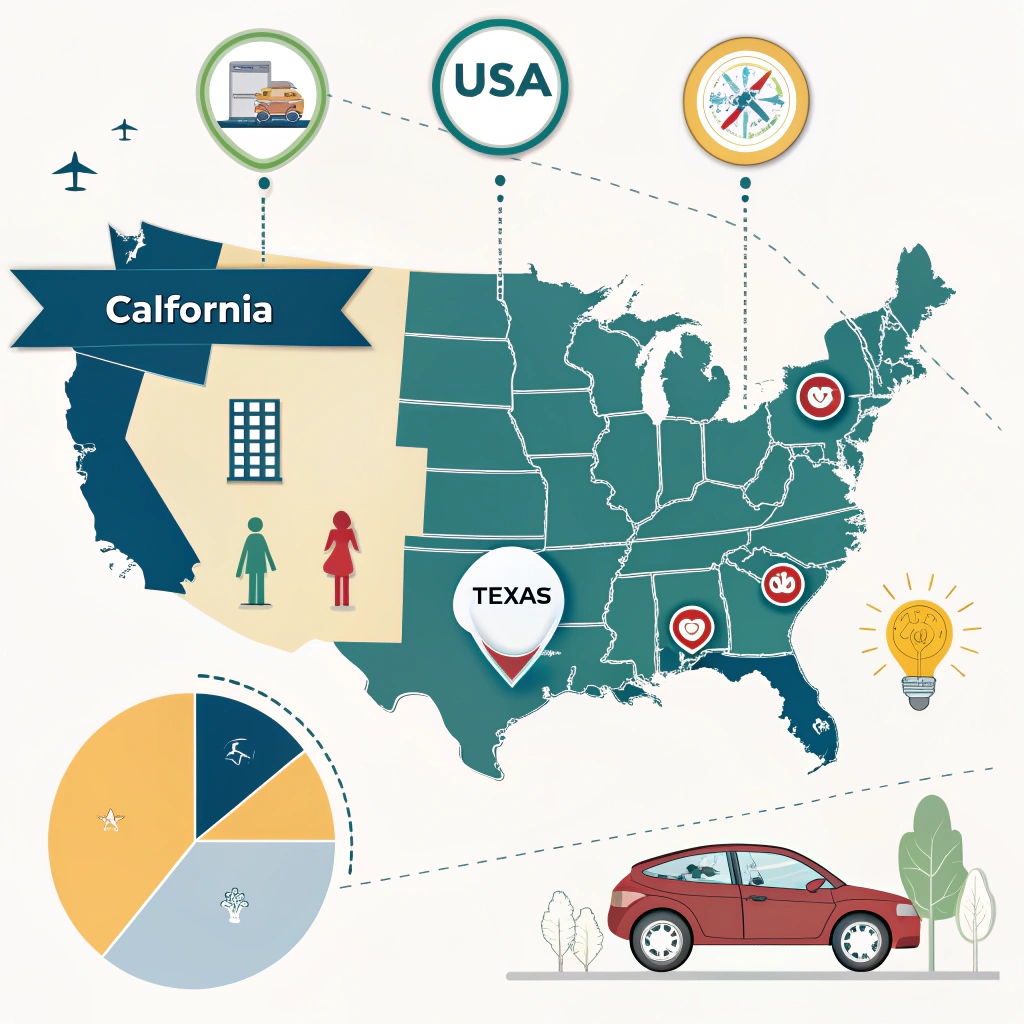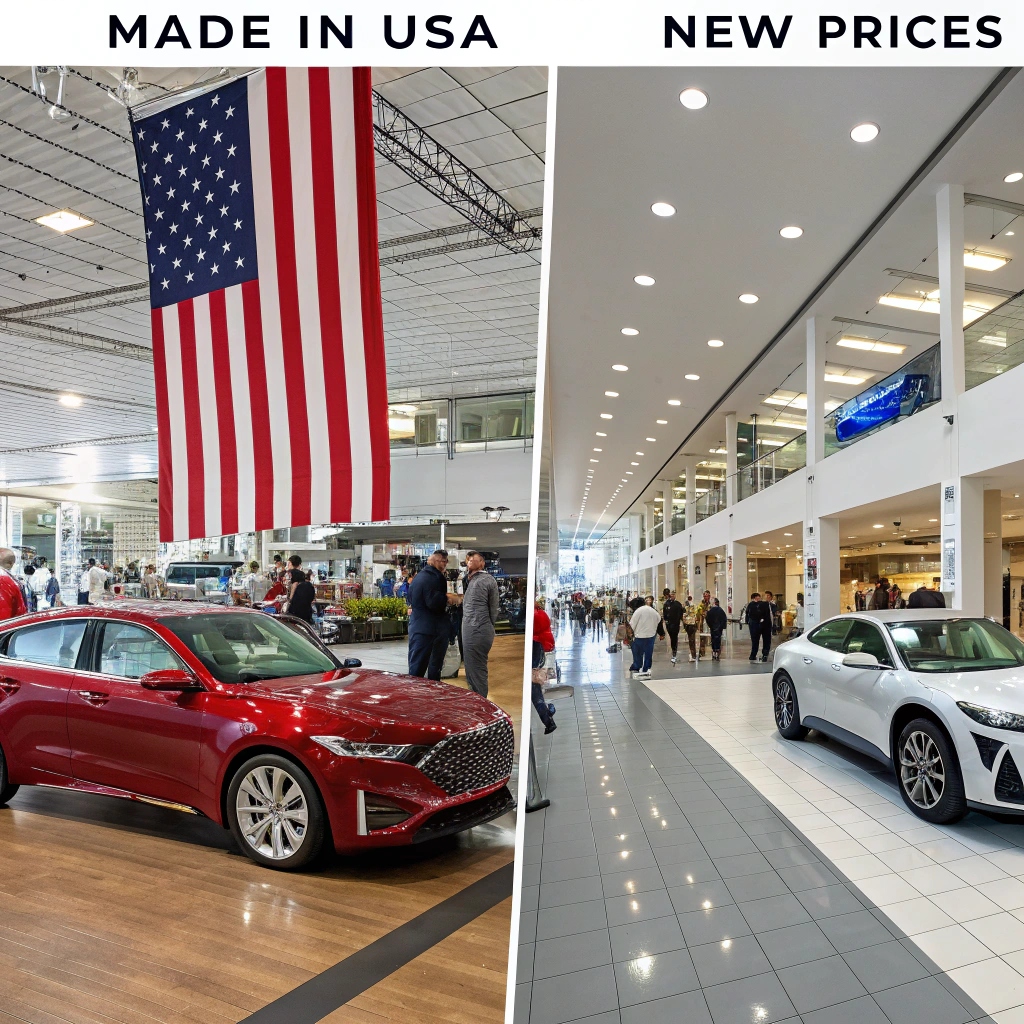Explore the pivotal automotive trends shaping 2025 in the USA, from the surge in electric vehicles and advanced driver-assistance systems to the impact of new tariffs on the industry.Financial Times
1. Electric Vehicles (EVs) Take Center Stage

The shift towards electric mobility continues to gain momentum in 2025. Major automakers are expanding their EV lineups to meet growing consumer demand and environmental regulations. Notable models include:
- Tesla Model Y and Cybertruck: Tesla remains a dominant player with its innovative designs and performance.
- Ford Mustang Mach-E: Combining performance with sustainability, this electric SUV appeals to both enthusiasts and eco-conscious drivers.
- Hyundai Ioniq 6: Known for its sleek design and impressive driving comfort, it’s a strong contender in the EV sedan category.
Advancements in battery technology and increased charging infrastructure are making EVs more accessible and practical for everyday use. TLC Motors
2. Advanced Driver-Assistance Systems (ADAS) Enhance Safety

Safety remains a top priority for consumers, and 2025 sees a significant uptick in vehicles equipped with ADAS features. These include:
- Adaptive Cruise Control: Automatically adjusts speed to maintain a safe distance from vehicles ahead.
- Lane-Keeping Assist: Helps drivers stay within their lane by providing steering assistance.
- Automatic Emergency Braking: Detects potential collisions and applies brakes if necessary.
These technologies are becoming standard even in more affordable vehicles, enhancing overall road safety. TLC Motors
3. Tariffs and Their Impact on the Automotive Industry

The introduction of new tariffs in 2025 has stirred significant concern within the automotive sector:
- 25% Tariff on Imported Vehicles and Parts: Implemented by the Trump administration, these tariffs affect vehicles assembled outside the U.S., including those from Canada and Mexico. Wikipedia
- Industry Response: Major automakers warn that these tariffs could lead to increased vehicle prices, reduced sales, and potential job losses. Reuters
- Consumer Behavior: Anticipating price hikes, consumers are accelerating their vehicle purchases, leading to a surge in sales and dwindling dealership inventories. The Verge
4. The Rise of Software-Defined Vehicles (SDVs)
2025 marks a significant shift towards vehicles where software plays a central role in functionality:R&S Logistics+1PwC+1

- Over-the-Air Updates: Manufacturers can now update vehicle software remotely, improving performance and adding new features without requiring a visit to the dealership.
- Enhanced Connectivity: Vehicles are increasingly integrated with digital ecosystems, offering seamless connectivity with smartphones and other devices.
- Personalized Driving Experience: Software allows for customization of vehicle settings, providing a tailored experience for each driver.
5. Sustainability Beyond Electrification
While EVs are a significant step towards sustainability, manufacturers are also focusing on other eco-friendly initiatives:

- Use of Recycled Materials: Incorporating recycled and sustainable materials in vehicle production to reduce environmental impact.
- Energy-Efficient Manufacturing: Implementing processes that consume less energy and produce fewer emissions.
- Lifecycle Assessments: Evaluating the environmental impact of vehicles throughout their entire lifecycle, from production to disposal.
Conclusion
The automotive industry in 2025 is at a crossroads, balancing technological advancements with geopolitical challenges. Consumers are witnessing a transformative era marked by electrification, enhanced safety features, and a push towards sustainability. However, policy decisions, such as the implementation of new tariffs, add layers of complexity to the market dynamics. Staying informed about these trends is crucial for both consumers and industry stakeholders as they navigate the evolving automotive landscape.

The transition to electric vehicles in 2025 is undeniably exciting, but it also raises some important questions. While the expansion of EV lineups and the focus on safety features like ADAS are commendable, I wonder how accessible these advancements will be for the average consumer. The introduction of new tariffs adds another layer of complexity—could this potentially slow down the adoption of EVs? It’s great to see manufacturers exploring other eco-friendly initiatives, but are these efforts enough to make a significant impact on sustainability? The automotive industry is clearly at a pivotal moment, but how do you think these changes will shape the market in the long term? What’s your take on balancing technological progress with the challenges posed by policy decisions?
yes that’s right